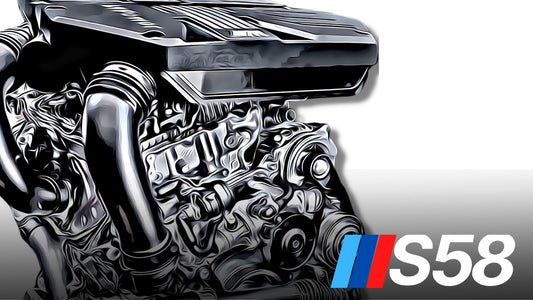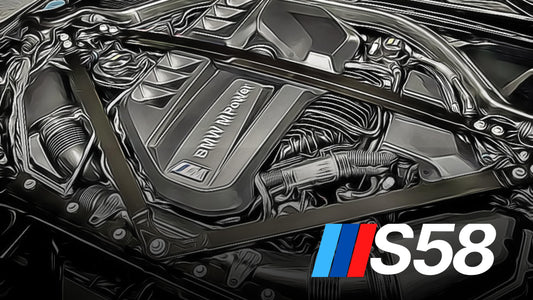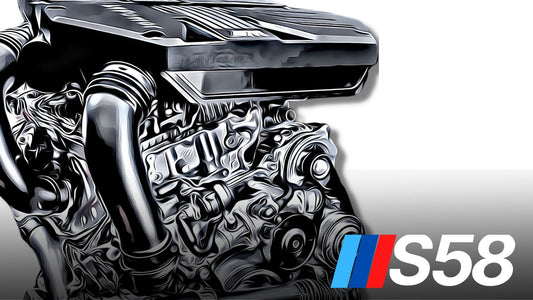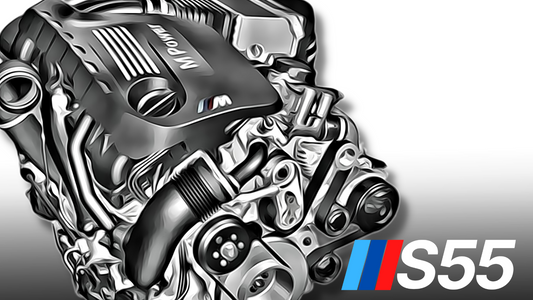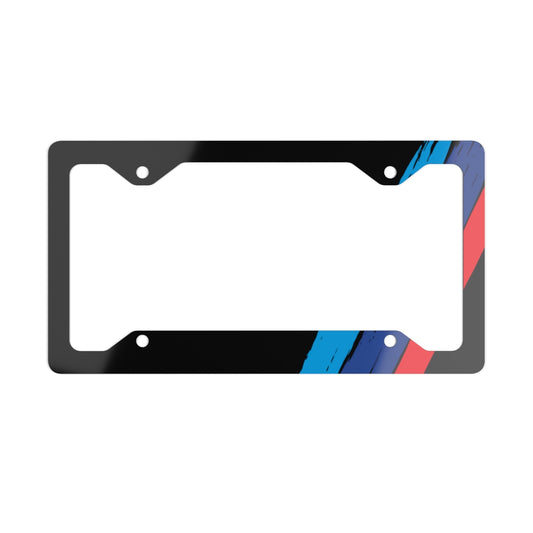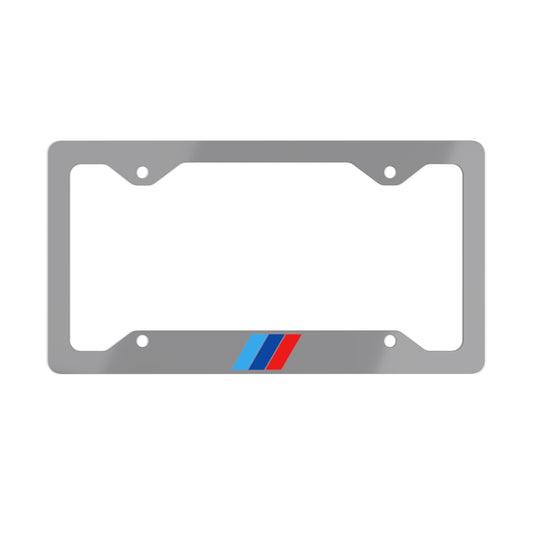One factor to think about when shopping for a BMW 135i, 335i, or 535i is the brand's reputation for dependability. Note that while we hope to cover the most pressing issues with the N55 platform here, this is by no means an all-inclusive guide. At some point or another, every vehicle and engine will break down. While this post won't cover every possible issue that could arise with a N55, we will focus on the most common engine issues that affect many vehicles.
Common N55 Engine Problems
- Valve Cover Oil Leak
- Water Pump Failure
- Leaking Oil Filter Housing Gasket
- VANOS Solenoid Failure
- High Pressure Fuel Pump Failure (HPFP)
N55 Valve Cover/Valve Cover Gasket Oil Leak
The BMW N55 engine is similar to the N54 in that a leaking valve cover, valve cover gasket, or PCV valve are common points of failure. Due to the high temperatures and repeated freezing and thawing, the rubber valve cover gasket deteriorates over time. Oil leaks and possible oil buildup in your engine are the result of the rubber gasket eventually cracking apart.
The N55's relatively high operating temperatures lead to valve cover issues. Since the plastic valve cover can easily crack from the extreme heat, replacing it may become necessary in the future. Unlike the valve cover gasket, this is a less common problem and can go for more than 100,000 miles before needing replacement (though this may vary significantly).
There is a lot of work involved in getting to the valve cover gasket, so it's recommended that you replace the valve cover as well. A valve cover gasket replacement is recommended whenever the valve cover is removed.
Symptoms - N55 Valve Cover and Gasket Leak
-
Low engine oil light
-
Burning oil smells, or smoke coming from valve cover area
-
Oil on spark plug threads
The Positive Crankcase Ventilation Valve is another component related to the valve cover and gasket (PCV valve). The vacuum created by the engine is used to draw any blow-by gases out of the crankcase via a PCV valve that is built into the valve cover. In the BMW N55, PCV valve failure is common due to increased pressures and wear and tear. To get to the PCV valve, you'll need to remove the valve cover and gasket, so it's a good idea to replace both of those components.
How To Replace N55 Valve Cover and Gasket
Since the valve cover, gasket, and PCV valve are all located in the same area, it is prudent to replace all three components simultaneously whenever one of them requires maintenance. As compared to the time and effort needed to install them, the parts are cheap. Even if the valve cover gasket looks fine, you should always replace it whenever the cover is removed.
Is It Better To Replace a Leaking Valve Cover or The Whole Gasket?
There is some disagreement on this point. There is no immediate danger to the N55's performance or durability from a small leak in the valve cover or gasket. There could be an oil leak, however, and the belts or engine/transmission mounts could be ruined. In the long run, this could cause those components to wear out faster than usual, which would necessitate more costly maintenance. At about 80,000 miles, the valve cover gasket on my 2003 BMW 335i started leaking. This leak has worsened over the past few thousand miles, but it was only a minor issue until about 95,000 miles. That being said, the next thing on my list of repairs is to replace the valve cover, gasket, and PCV valve.
This is not a difficult do-it-yourself project, but it does require the removal of numerous parts. This can take an intermediate DIYer up to eight hours to complete.
N55 Water Pump Failure
Problems with water pumps affect not only the N55, but also the vast majority of BMW engines. To reduce engine temperatures, water pumps circulate coolant throughout the N55's cooling system. BMW employs electric pumps with composite impellers, which have a relatively short lifespan. It is essential to note that the thermostat is also a frequent failure point. Due to the labor-intensive nature of replacing a water pump, it is recommended that you also replace the thermostat.
Failures of these BMW water pumps have been reported as early as 30 to 40 thousand miles, while others have lasted over 120,000 miles. If your original pump and thermostat last 100,000 miles on average, they are likely on their way out.
Typically, BMW water pumps do not exhibit any symptoms prior to failure; rather, they fail abruptly. If the pump is electrically degrading slowly, this can be easily determined by observing the coolant flow in the cooling system; a failing pump will not flow coolant at the desired pressure. The following symptoms may indicate that the water pump in your N55 has failed.
N55 VANOS Solenoid Failure
Variable Camshaft Timing, also known as VANOS, is a valve timing system utilized in conjunction with Valvetronic on the BMW N55 engine. BMW VANOS (or Double VANOS on the N55) adjusts the intake and exhaust camshaft timing based on engine speed and throttle opening. As engine speed increases, the double VANOS system increases torque, improves fuel efficiency, and reduces emissions.
Since the VANOS Solenoids are always in operation, they typically fail due to wear and/or age. However, they may become encrusted with oil and cause problems because they are too soiled or gunked up. It should also be noted that between 2010 and 2012, the VANOS bolts on early model N55 engines were recalled. The bolts may become loose or break; when a bolt breaks, it typically falls into the engine oil pan, resulting in increased repair time and expense. This has been recalled, so it should no longer be an issue.
N55 Leaking Oil Filter Housing Gasket
The Oil Filter Housing Gasket (OFHG) begins to deteriorate and leak oil as the N55 ages, constituting a further vulnerability. In the short term, an OFHG leak is not a significant issue; however, to avoid undue alarm, the oil frequently leaks onto the belt tensioner and drive belt. When oil drips onto belts, it is never a good sign.
This may result in the belt snapping or slipping off the pulley, which can cause damage to other engine components and, in the worst-case scenario, may pull the crankshaft seal into the crankshaft (front main seal). If the belt gets past the front main seal and into the engine's internals, there is a serious problem. This information is not intended to frighten anyone, as it is uncommon for the belt to be pulled into the N55 engine, but it is possible.
All of this can typically be avoided by replacing the oil filter housing gasket; however, there is the possibility of belts slipping or shredding for unrelated reasons.
In addition, there is the possibility of oil and coolant cross-contamination if the OFHG leaks excessively or for an extended period of time. The Oil Filter Housing Gasket costs approximately $15, so it is a low-cost solution to a problem that may cause significant issues in the future. As with most BMW repairs, replacing the OFHG can be a time-consuming process, which could result in a hefty bill if you pay a mechanic. However, replacing the leaking gasket is necessary because it may prevent future problems.
N55 High Pressure Fuel Pump Failure (HPFP)
A high pressure fuel pump is responsible for pumping gasoline from the gas tank to the fuel injectors, where it is then sprayed directly into the cylinders by the N55's direct injection. We will not devote too much time to this topic, as it primarily affects 2010 and early-to-mid 2011 N55 models. BMW's N54 is notorious for the numerous HPFP problems encountered during production. Not until late 2011 did an efficient HPFP finally resolve the problem. In 2010 and 2011, when the N55 was first introduced, BMW did not have an official fix for the HPFP, despite the company's numerous attempts. Therefore, the N55 was released with the same defective HPFP as the N54.
In contrast to the N54's HPFP, which received a 10-year, 120,000-mile extended warranty, the N55's HPFP is NOT covered by an extended warranty. The majority of defective HPFPs installed in early-model N55s likely failed under warranty and were replaced with the most recent design, which resolved the problems. As there are still some older N55s in use that utilize the obsolete HPFP, this is a potential issue.
How Reliable Is The BMW N55?
Despite the widespread belief that BMWs are unreliable, the BMW N55 engine is surprisingly dependable. The four most common issues with the N55 are the valve cover and gasket, water pump, oil filter housing gasket, and VANOS solenoids, in no particular order. None of these are necessarily significant issues, and the majority of the components are inexpensive. However, and I believe this is where the misperceptions about BMW reliability come into play, if you always service your BMW at the dealership or at independent repair shops, the repair costs can add up.
Also, keep in mind that this is not an exhaustive list of everything that can go wrong with the N55, nor does the presence of a problem on the list imply that it will persist indefinitely. In light of this, we are examining the "average" N55 engine and what goes wrong with it. There are numerous N55s with 100,000 miles that have not required any out-of-pocket repairs, whereas others with significantly fewer miles may incur annual repair costs in the thousands. It all depends on how well you maintain your N55 and, to some extent, on chance. Overall, the BMW N55 is a dependable engine that is easily capable of producing impressive horsepower and torque.



